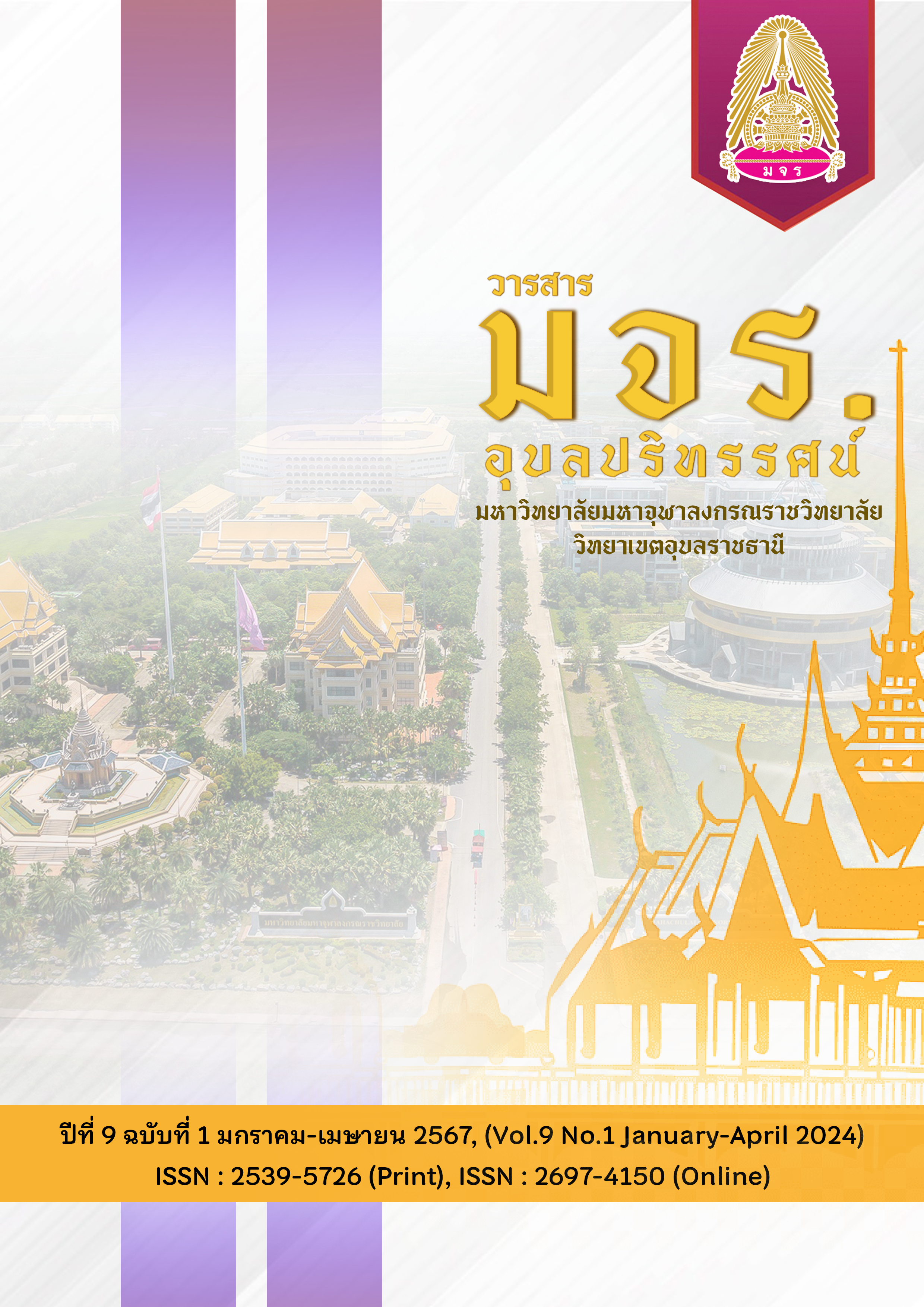RESEARCH ON THE VERIFICATION OF THE ELEMENTS OF KINDERGARTEN TEACHERS ' COMPETENCY QUALITY
Main Article Content
บทคัดย่อ
The research on the elements of kindergarten teachers ' competency is the key to the construction of high-quality kindergarten teachers. Through the design of the questionnaire, through the content validity analysis of 29 experts, 326 valid questionnaires of kindergarten teachers were analyzed for reliability analysis and structural validity analysis. After revising the questionnaire, formal questionnaires were distributed to kindergarten teachers in 18 provinces and cities in China, and 683 valid questionnaires were collected. Through the questionnaire analysis of formal investigation, the research proves that the elements of kindergarten teachers ' competency obtained from the text coding of behavioral event interview are accurate, and proves that kindergarten teachers ' competency is a multi-dimensional hierarchical structure, including 8 first-level competency elements and 54 second-level competency elements. The research results can be applied to the investigation of kindergarten teachers ' competency, and can be used as the basis for kindergarten teachers ' training, training, recruitment and performance evaluation.
Article Details
References
Li, Q. (2023). Research on the Relationship between Professional Quality and Professional Identity of Kindergarten Teachers, Master's Thesis, Tianjin Normal University.
Leng, X.J. (2020) A Survey and Study on the Current Situation of Professional Quality of Preschool Teachers - Taking Kindergarten Teachers in Chaoyang City as an Example. Journal of Liaoning Teachers College (Social Sciences Edition) (03), 131-134
Li, L. (2022). Investigation and Research on the Current Situation of Professional Literacy of Novice Teachers in Private Kindergartens, Master's Thesis, Fujian Normal University
D, C, & McClelland. (1973). Testing for competence rather than for "intelligence". American Psychologist, 28(1):1-14.
Goh, P. S. C. . (2013). Conceptions of competency: a phenomenographic investigation of beginning teachers in malaysia. The Qualitative Report, 18(20), 16.
Shinkfield, A. J. , & Stufflebeam, D. L. . (1995). Teacher evaluation: guide to effective practice. evaluation in education and human services. administrators.
Danielson, C. . (2007). Enhancing professional practice: a framework for teaching. Association for Supervision & Curriculum Development, 9(1), 2–18.
Han, R. (2021). Investigation and Research on the Current Status of Competence of Kindergarten Teachers - Taking Kindergartens in N District of C City as an Example, Master's Thesis, Jilin Foreign Studies University
Zhang, C.Y. (2020). Research on the Current Status and Improvement Strategies of Competence of Teachers in Private Kindergartens - Taking Guangzhou City as an Example. Journal of Guangzhou Radio and Television University (02), 36-41+109
Wang, Q. & Song, S.Q. (2008). Construction of Competency Model for Preschool Teachers. Shanghai Education Research (04), 52-54
Huang, Q.Q., Li, X.L. &Su, Y.J. (2021). Construction of an Implicit Competency Model for Preschool Teachers. Journal of Capital Normal University (Social Sciences Edition) (03), 181-188
Spencer Jr L M. & Spenser S M.(1993).Competence at work Models for superior performance .New York:John Wiley & Sons,Inc .
Connelly, B. L. , Crook, T. R. , Combs, J. G. , Ketchen, D. J. , & Aguinis, H. . (2018). Competence- and integrity-based trust in interorganizational relationships: which matters more?:. Journal of Management, 44(3), 919-945.
De Vellis R F.(1991).Scale Development Theory and Applications .London:SAGE .

